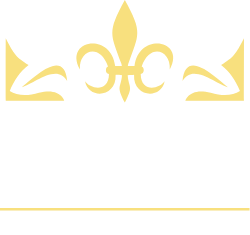Technical Specification of Material
Glossary of technical terms
This glossary serves as a reference for the technical data listed below and contains data provided by the International Organisation for Standardisation (ISO).
Water absorption ISO 10545-3
- Low Density – Dry pressed tile with a water absorption rate of more than 7%
- Medium Density – Dry pressed tile with a water absorption rate between 3% and 7%
- High Density – Dry pressed tile with a water absorption rate between 0.5% and 3%
- Extreme Density – Dry pressed tile with water absorption of 0.5% or less. This is where porcelain stoneware is categorised.
Deep abrasion resistance ISO 10545-6
This is a scale of hardness ranging from 1 to 10 used to determine a material’s scratch resistance. The Mohs scale uses ten fairly common minerals of known hardness and gives each of them a relative value of 1-10. Each mineral in the scale will scratch those with lesser values and will not scratch those with higher values. Porcelain stoneware often has a rating of 7, 8 or 9.
Mohs scale Mineral Compared to other flooring materials
1 – Talc – Resilient flooring (vinyl, asphalt tile)
2 – Gypsum – Wood flooring
3 – Calcite – Polished marble, laminate flooring
4 – Fluorite – Black marble
5 – Apatite – Glazed ceramic tile
6 – Feldspar – Glazed ceramic tile
7 – Quartz – Quarry tile, Porcelain stoneware
8 – Topaz – Porcelain stoneware
9 – Corundum – No flooring is this hard
10 – Diamond – No flooring is this hard
Stain resistance ISO 10545-14
This test measures the resistance to staining of a surface. Staining tests are achieved by prolonged exposure of the surface to test solutions and dry staining agents. The surface is visually evaluated after the staining agent has been cleaned off using a combination of cleaning procedures.
Class 1 – Stain is not removed
Class 2 – The stain is removed using solvent, such as acetone
Class 3 – The stain is removed using a strong commercial cleaning agent
Class 4 – The stain is removed using a weak commercial cleaning agent
Class 5 – The stain is removed with hot water
Frost resistance ISO 10545-12
Frost resistance determines whether or not a tile is suitable for outdoor applications in colder climates. When a tile absorbs a large quantity of water and the volume increases from freezing, the tile can break. This test consists of soaking the tiles in water and subjecting them to temperature cycles from +51˚C to -51˚C (+123.8˚F to -59.8˚F). All sides of the tiles are exposed to freezing over 100 freeze-thaw cycles.
Technical specification
Technical performance
- Due to the unrivalled technical performance of porcelain, high temperatures and sudden thermal changes do not affect the surface.
- Kitchen countertops need to perform under extreme conditions. They are constantly exposed to potential scratches and scores from sharp or pointed tools. It is under these intensive conditions that porcelain excels, exhibiting one of the hardest surfaces available on the market, and maintaining a perfect surface that will not fade, or discolour or deteriorate over time.
- Scientific evidence has demonstrated that porous materials foster bacterial proliferation more than non-porous materials. As porcelain is a compact, non-porous material, it is particularly suitable for food preparation surfaces in the kitchen, and other situations sensitive to hygiene. Porcelain is also NSF certified, meeting the highest standards for safety, quality, sustainability or performance.
- Porcelain is extremely compact and non-porous, not allowing liquid or air to pass through it. This makes it the ideal choice for kitchen countertops. As the material is impenetrable, even the most difficult stains can be easily removed: not only oil, wine, sauces and coffee, but also acidic substances such as lemon, vinegar or residues of detergents. These substances can be easily wiped off without the use of chemical products. This reduces the environmental impact further as chemical products are no longer required.
Questions?
Get in touch with us for additional information about our products.
